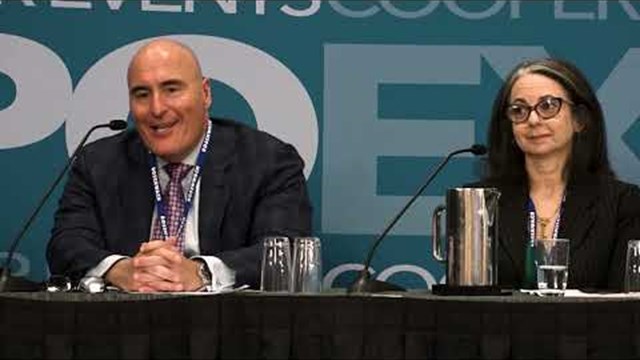The 347,000 planned communities in the United States—a number that includes cooperatives, condominiums, and homeowners associations—are generally governed by volunteer members of the building or community elected by their fellow unit owners or shareholders. There are no requirements or prerequisites for serving on a board, other than what might be specified in the governing documents of a particular community—usually status as a member in good standing and a minimum age, for example.
While having a professional history or other relevant experience in a field like architecture, accounting, law, interior design, engineering, or urban planning might be useful on a board, these skill sets do not necessarily “qualify” someone to be a director. All it takes is a willingness to essentially run a multimillion-dollar nonprofit for zero pay, little recognition, and fair-to-high likelihood of being confronted by at least one irate neighbor at some point (and probably more than once) in one’s tenure.
So what separates a good board from the stereotypically despotic and dysfunctional ones, or even a mediocre one? We spoke to professionals in several fields who regularly work with multifamily boards to get their perspectives and offer some insight into what makes the best boards best.
Respectful Interaction
While there are no prerequisite degrees or credentials for board service, anyone interested in serving on their board should at minimum be able to read and understand their community’s governing documents and to apply reasonable judgment in making governing decisions.
“The expectation is that you come with a basic intelligence and ability to analyze problems,” says FirstService Residential New York vice president and general counsel Ben Kirschenbaum. “You’re not expected to be an expert, so your role is to seek the expertise and guidance of your professionals—accountants, attorneys, engineers, insurance brokers. You’re the ones who make the decisions, and if you use good business judgment, your decisions will be upheld legally”—an important assurance in our aggressively litigious society.
Arguably, the most significant professional relationship for a board is with its managing agent. While boards set policy and make decisions for their buildings or communities, the managers are there to carry those decisions out—and for that interdependency to work smoothly and efficiently, a board has to be able to communicate, collaborate, and trust their management professionals. The relationship between boards and managers “should be looked upon as a partnership,” Kirschenbaum says. “How management works with our boards to achieve both our goals and theirs is critical. A good relationship makes it easier to get things done.”
Key to that good relationship, adds Alison Phillips, vice president, multifamily and commercial for FirstService Residential Massachusetts, is respect: respect among board members themselves and between the board and management. “Not everyone is going to agree on every issue, and that is fine,” she says, “But if there is a lack of respect for other people’s opinions, that creates an ineffective, unprofessional environment for everyone involved.” When a manager sees a board member or members being disrespectful toward other board members or to the manager or staff, that is a clear indication that that board is not going to be easy to work with, notes Phillips.
Kirschenbaum has been interacting with residential boards for the better part of four decades, and has seen an evolution of sorts over that time which he characterizes as moving toward “higher expectations on both sides of the equation.” While boards are increasingly made up of professionals—and, perhaps unsurprisingly, operating more professionally—they are also increasingly relying on their managers to liaise with other building professionals and to get the day-to-day business done. This, says Kirschenbaum, is how it should be.
Change is Good
One pitfall for even well intentioned boards is becoming complacent—either by blindly deferring to precedent or by “passing the buck” to future boards to make difficult or unpopular decisions. This type of mentality, say the pros, is also indicative of a “bad board.”
Tina Straits, vice president and general manager of Baum Property Management in Aurora, Illinois, has seen such patterns play out, to detrimental effect. “It’s very difficult to work with board members who are resistant to change, simply because ‘that’s the way we’ve always done it,’” she says. “I think that personalities that tend to be open to new ideas work best on a board.”
For example, “It is important to have board members who understand that keeping assessments at the same level for years is not beneficial to the homeowners in the long run,” she continues. “While homeowners may love this initially, it may ultimately result in a budget crisis when large projects need to be done but funding has not been set aside.”
Phillips agrees. “Special assessments often happen because the board hasn’t been proactive in its decision making,” she says, “so a proactive board can potentially reduce the chance for special assessments.”
The Right Reasons
Jeff Roude, partner with Sax LLP, an accounting and tax advisory firm with offices in New York City as well as Parsippany and Pennington, New Jersey, has worked with boards who didn’t raise common charges for years—even decades. He contends that many of those directors might have been on their boards for the wrong reasons.
“A lot of people run for the board for personal, self-satisfying reasons,” he says. “I think that’s one of the problems with some boards—they’re in it for themselves and not for the building. They forget that they have a fiduciary responsibility to do what’s best for the building. When I meet with a board or sit down with a client that’s interviewing me, I’d like to hear that they’re in it for the right reasons. And if they need to raise maintenance, they raise maintenance—because it’s needed, not because they don’t feel like paying any more maintenance.”
Eric Mullendore, an architect and interior designer in Chicago who works with co-ops and condos, has seen his share of selfish or ill-motivated boards. He notes that another practical implication of such situations is that projects tend to go awry or get unnecessarily delayed; egos, stubbornness, and poor judgment can lead to increased costs and extended inconvenience for these multifamily communities. “I’ve had experiences over the years where people are more interested in having their way seen than trying to find the common good,” Mullendore continues. “It should always be about the common good. That—and good teamwork—make for the most successful projects.”
Joseph Balzamo, COO of AR Management Company in Morristown, New Jersey, also has experience with board members who have ulterior motives. “[Say there is] a board member who is an investor,” he relates, “and wants to rent one of his properties out, so he is on the board to keep the maintenance fees low so he can keep the rent high. He’s not really interested in the building. He’s really just interested in his personal agenda and his pocket.”
A good board is one that keeps its focus and adheres to its business, says Balzamo. “What also makes a board work well is that they all have the same goal,” he continues. “They all recognize that what’s paramount is the property, and the condition of the property and the value of the property. Those are three things that are most important: what the value is, what the condition is, and what your agenda is with it.”
Business Up Front
When it comes down to it, say the pros, a co-op, condo, or HOA is really a business—a fact that board members and shareholders/unit owners should keep in mind when volunteering for their building or community and setting expectations for what a board can accomplish. “It’s not about them as individuals,” says Roude, “it’s about operating a business. So you’ve got to do what’s right for the business and not for yourself. If you can’t do that, you shouldn’t be on the board.”
Darcey Gerstein is Associate Editor and a Staff Writer for CooperatorNews.










Leave a Comment